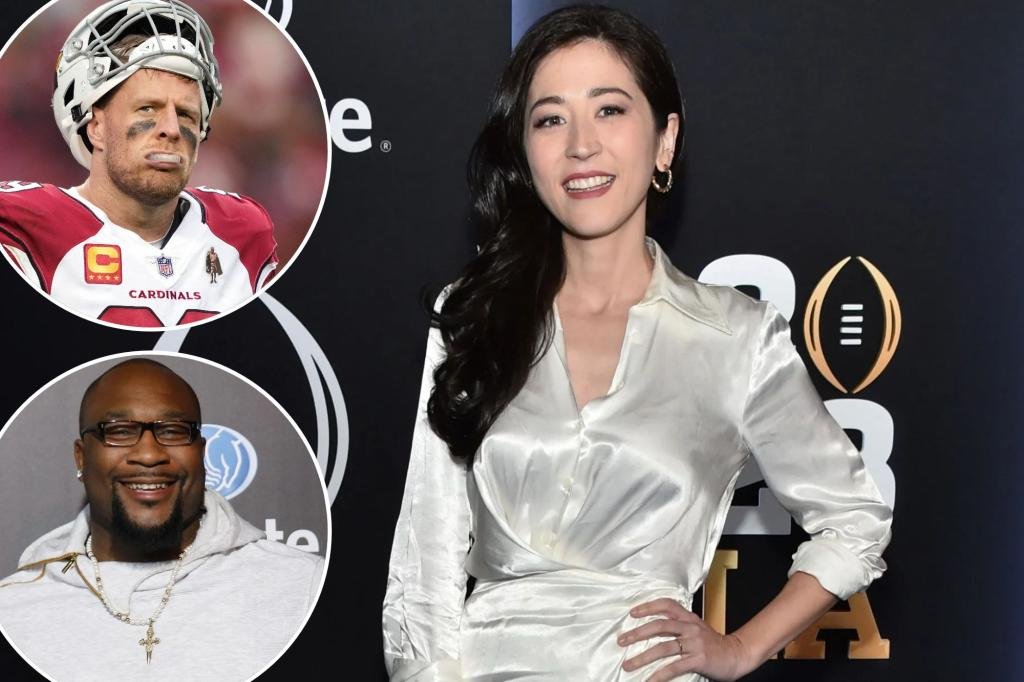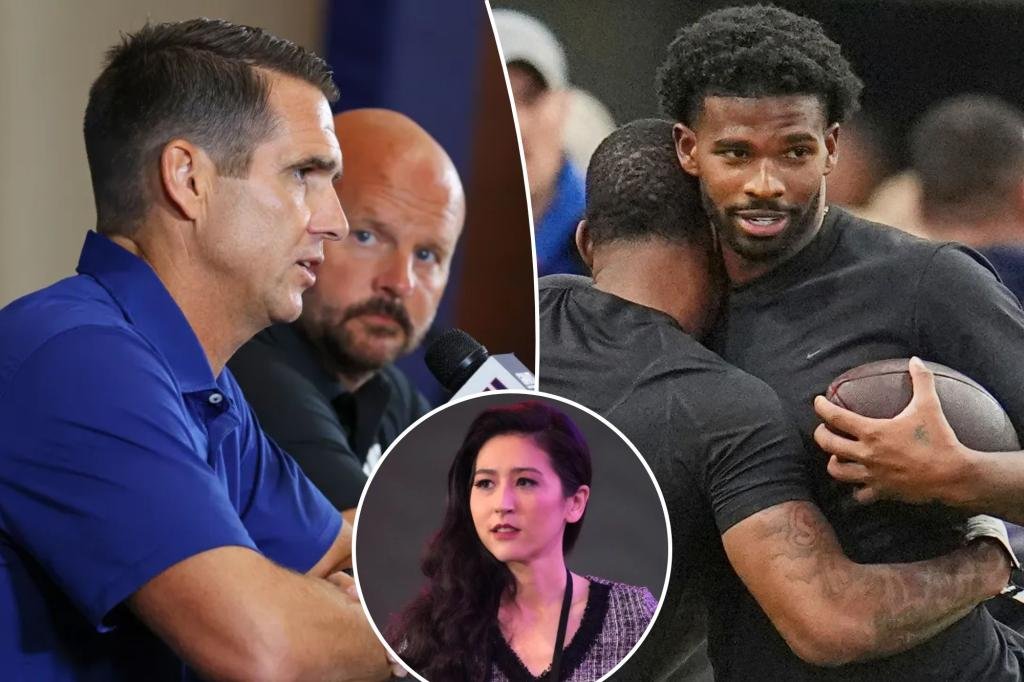Fans Turn On ESPN’s Mina Kimes After “Shameful” Social Media Move With Stephen A. Smith What Really Happened Behind The Scenes
Mina Kimes Caught In The Middle Of An Unexpected Controversy
Sometimes, the internet can turn on you in a heartbeat. That’s what happened to ESPN’s Mina Kimes this week after what seemed like a harmless social media post ended up igniting a wave of criticism from fans who once adored her.
It all started innocently enough. Papaya Gaming, a popular mobile game company, made a flashy announcement naming Stephen A. Smith as the official ambassador for the upcoming World Solitaire Championship, scheduled to happen in February. It sounded random but funny at first a serious sports analyst being tied to Solitaire, of all things.
But things took a turn when several other familiar ESPN personalities including Mina Kimes, Laura Rutledge, Ros Gold-Onwude, Dan Orlovsky, and Kendrick Perkins also posted about the same app on social media. Suddenly, fans realized this wasn’t just a funny post it was part of a coordinated marketing campaign. And that’s when the backlash began.
At first, no one paid much attention. It was just another day on social media, another round of celebrity endorsements. But then Stephen A. Smith himself leaned into the joke, posting, “Y’all really mad I was playing Solitaire during the Finals? Maybe ask yourself why.” That reference went viral immediately reminding fans of the time he was actually caught playing Solitaire during Game 4 of the NBA Finals.

Mina Kimes decided to join in on the fun. She tweeted, “#ad that’s an easy win over here,” in response to Stephen A.’s post, followed by her own ad encouraging fans to join the “Beat Stephen” tournament on Solitaire Cash. What she probably thought was a lighthearted plug instantly set off a firestorm. Fans didn’t find it cute they found it disappointing.
Fans Feel Betrayed As They Accuse Mina Kimes Of “Selling Out”
Mina Kimes has always been one of those media figures fans felt connected to. She’s smart, funny, relatable, and rarely gets caught up in controversy. But the moment money entered the conversation, the internet turned. Within hours, her mentions were flooded with angry comments calling her “shameful” and “disappointing.”
“You didn’t feel like you were above this? Yikes,” one user wrote. Another said, “Nooooo, they got Mina too??? Nooooo,” echoing the disbelief that someone as respected as Kimes would promote what they called an “addictive chase the money app.” One harsh comment even said, “Your parents must be proud of your high integrity character.”
It wasn’t just the message it was the tone. Fans accused Kimes of being “fake” or “corporate,” something she’s never been labeled as before. And to be fair, Mina has built her entire career on authenticity. She’s known for sharp analysis, humor, and for being one of the few voices in sports media who feels truly genuine. That’s why this one post hit differently.
But the thing is it’s not unusual for media personalities to promote brands or mobile games. It’s part of the social media landscape now. Everyone from pro athletes to movie stars does it. So why did fans single out Mina Kimes? Because in their eyes, she represented something different someone who wasn’t “part of the machine.”

To many followers, it felt like she sold out for a paycheck. The disappointment wasn’t really about Solitaire it was about trust. Social media users often develop parasocial relationships with celebrities and journalists, feeling like they “know” them personally. So when that illusion cracks, even slightly, the backlash feels personal.
The Bigger Picture: The Blurry Line Between Fun And “Fake” Online
Ironically, the whole Solitaire drama came just days after Mina Kimes was trending for something completely positive her stylish appearance next to Laura Rutledge inside AT&T Stadium during Monday Night Football. Fans had flooded her posts with love, calling her “one of the coolest and most genuine people on ESPN.”
Then, almost overnight, the mood flipped. The same fans who had been hyping her up were now mocking her. Some even compared her to influencers who “pretend to care about their audience but only want ad money.” Others argued she was being unfairly targeted just because she’s a woman in sports media, saying male analysts have done worse without facing half as much criticism.
It raises a bigger question where’s the line between a harmless sponsorship and a “sellout” move? If Stephen A. Smith can joke about playing Solitaire during the Finals and still get a multi million dollar ad deal, should Mina Kimes really be vilified for the same thing?
In truth, she probably didn’t expect this level of outrage. Her post was clearly marked with “#ad,” and it was playful, not misleading. But social media doesn’t always reward honesty sometimes, it just wants outrage.

For Mina Kimes, the lesson might be that the internet doesn’t forget easily especially when it feels betrayed. Still, her loyal fanbase hasn’t completely turned on her. Many came to her defense, saying the hate was unnecessary and hypocritical. After all, every ESPN personality in that campaign, from Laura Rutledge to Kendrick Perkins, posted the same type of ad yet Mina’s got the most heat.
That says a lot about how people perceive her. The higher the pedestal, the harder the fall.
As of now, Mina hasn’t addressed the backlash directly. She’s gone silent on the matter at least publicly. Maybe she’s waiting for it to blow over. Maybe she’s just focused on her work. Either way, one thing’s clear: this minor controversy has opened up a real conversation about how fans treat authenticity in the digital age.
Social media can lift you up and tear you down within the same week and Mina Kimes just got a painful reminder of that.